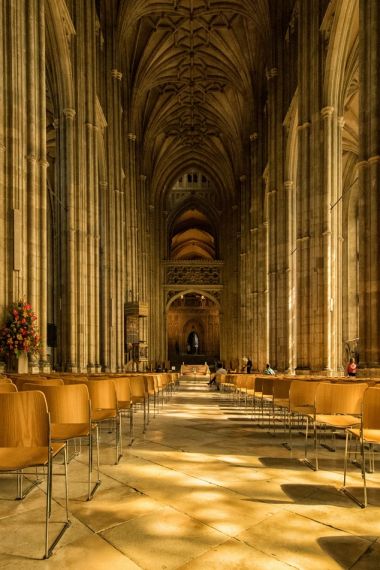Churches split over staying open during lockdown

England's decision to allow places of worship to remain open during the third national lockdown has revealed a split in opinion among churches.
While this latest lockdown in England is similar to that imposed by the Government last March it differs in that this time round, churches are permitted to remain open for public worship.
Despite this, some pastors have already taken the decision to close their buildings and others are urging the same.
The Baptist Union of Great Britain (BUGB) has asked its churches in England to suspend public worship during this lockdown because of rising Covid numbers and pressure on the NHS.
"We strongly encourage churches not to open their buildings for in-person meeting if at all possible," the BUGB said in a statement.
"We recognise that the Government guidelines allow churches to remain open in England during this period; however, given the significant increase in numbers of Covid-19 infections and pressure on the NHS, we advise churches to stand with the wider community in making every effort to limit the spread of the virus.
"We would still support churches to open their buildings, as you have done throughout the pandemic, to provide vital services to the local community, such as food banks.
"We know that geographical contexts differ across England and we are aware that the decision lies with the local church. Nonetheless we are mindful of the pressure church leaders are under and the greater risk taken by all those involved in hosting open buildings for whom we have a duty of care."
The Church of England has been criticised by some Anglicans for refusing to advise the closure of churches.
The Bishop of London, Dame Sarah Mullally, a former nurse and Chair of the Church of England's Covid Recovery Group, acknowledged that "some may feel that it is currently better not to attend in person" and that some parishes would offer digital services only for the timebeing, but she left the decision to remain open or closed with individual churches.
"Clergy who have concerns, and others who are shielding, should take particular care and stay at home," she added.
The leader of the Fellowship of Independent Evangelical Churches (FIEC), John Stevens, has taken a similar approach, telling church leaders and trustees to "make their own decision" about the appropriate course of action "in their specific circumstances".
"Whilst the new law will allow places of worship to remain open for corporate worship, this does not mean that they are required to remain open," he wrote in an update on the FIEC website.
"Many churches may choose to close for public worship during this lockdown period out of concern for the members of the congregation (especially if they are elderly and vulnerable) or their reputation in the wider community where there is strong public concern about unnecessarily spreading the virus."
He continued: "FIEC would urge all churches to comply fully with the law and guidance, and respect the autonomy of each local church as to whether to continue to meet physically during this difficult period for our nation.
"It is important that we respect each other and the decisions that our churches make and not cast aspersions on the motives that individuals and churches may have for either choosing to remain open or moving to online services only."
Attitudes have also varied in Scotland, where First Minister Nicola Sturgeon ordered churches to shut.
While Church of Scotland Moderator, Dr Martin Fair, has welcomed the decision to close churches "to keep each other safe", Catholic bishops have attacked the order.
In a strongly worded statement, they said they were "perplexed" by the decision "given that the stringent measures taken since last March to ensure public safety in our churches have been effective".
"No evidence has been forthcoming to justify the inclusion of places of worship as sources of infection," they said.
"Without such scientific evidence these restrictions will appear to Catholics to be arbitrary and unfair. Moreover, significant number of other sectors similarly restricted last March alongside public worship – such as construction, manufacturing and elite sports - have now been left free to continue in operation.
"We also note that, in England, the essential contribution of public worship to the spiritual welfare of all citizens during this crisis has now been endorsed by the decision not to close places of worship while the Scottish Government has apparently retreated from this view, causing dismay and confusion."
Their position reflects that of Cardinal Vincent Nichols, the head of the Catholic Church in England and Wales, who has welcomed the decision south of the border to keep churches open for public worship.
"The regular practice of our faith in God is a source of personal resilience and dedicated service of those in need, both vital in these difficult times," he said.
"I am glad no measures have been introduced to obstruct or curtail this essential source of energy for the common good."











